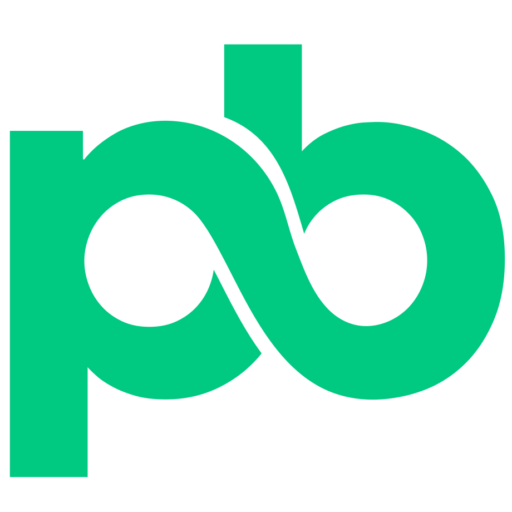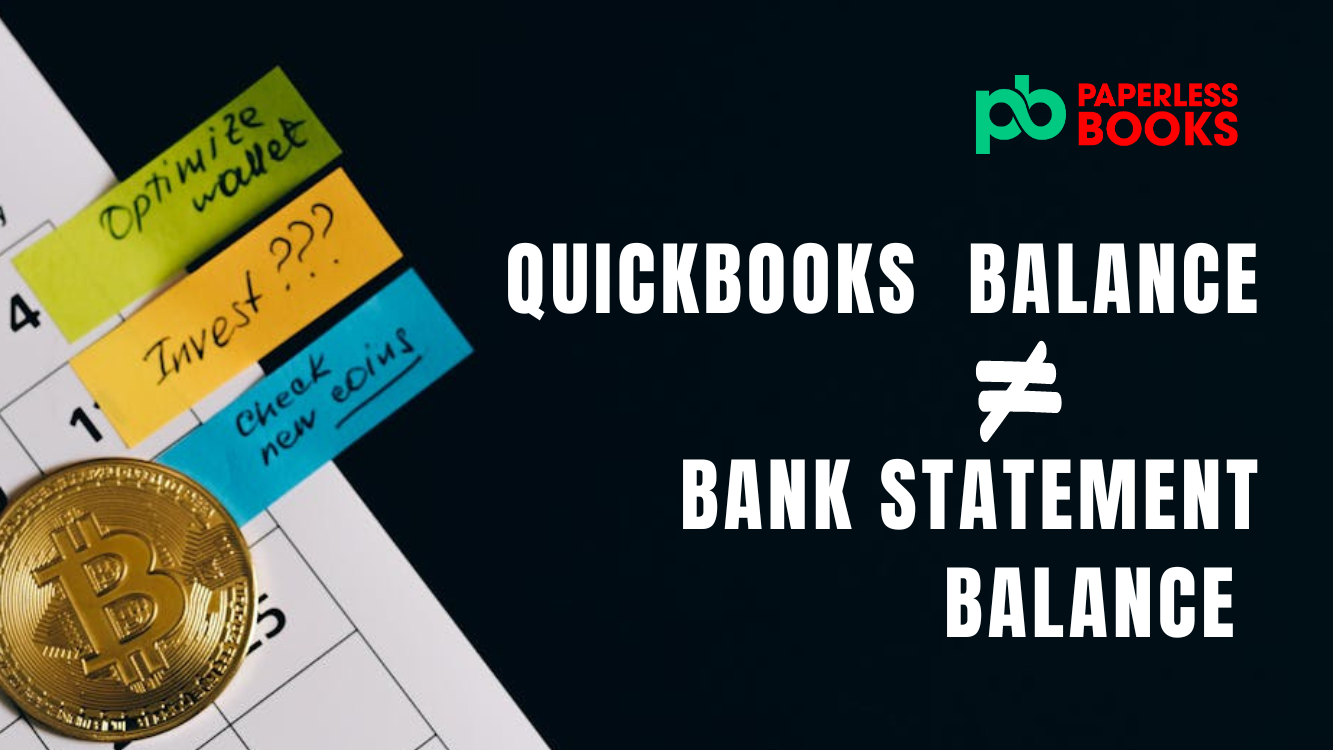QuickBooks can be a very complicated software to use if you are not a bookkeeper/accountant. It has many tools and features that can be beneficial and make your life easy. However, if used improperly, it can also ruin your books and make your books look terrible.
During my years of bookkeeping, one of the most common mistakes I’ve seen is when the Quickbooks bank balance does not match the balance on your bank statement. What do I mean by a mismatch between your Quickbooks bank balance and your bank statement balance? Well, sometimes, you can have a situation where your ending balance on a bank statement shows a certain number on a specific date, but the number in your Quickbooks, does not show the same number.
How to Check that your Balance Matches your Bank Statement in Quickbooks Online
In order to check this for yourself, you can pull up a recent bank statement. Look at the balance at the end of statement period. Make a note of it. Now pull up the balance sheet report in Quickbooks with the same end date. Here is how:
- Go to Quickbooks online
- Click Reports on the side panel
- Select “Balance Sheet” report
- Change the date to the end date of your bank statement
If you compare the balance on your bank statement with the balance on your Balance Sheet, they should be exactly the same (especially for the chequing account). If they are, this is perfect, and it means you don’t have a problem with your books. However, if the numbers are not the same, it means you may have a problem with your books and hopefully this blog will help you find the issue and rectify it.
What Happens When Your Bank Balance Doesn’t Match Your Quickbooks Bank Balance

There are a few reasons why this can be bad for your books, here are some of those reasons:
Unrecognized Expenses or Income
When your bank balance does not match your bank, it means that transactions such as expenses, may not be recognized in your books. For examples, say your Quickbooks balance is $10,000 but your bank statement for that same date shows a balance of $8000. In this case, it probably means you have expenses that have not yet been recorded in your Quickbooks. At the same time, if could also mean you have both sales and expenses that have not yet been recorded in your books. Both of these can affect a decrease in your Quickbooks balance to decrease to $8,000 in order to match your bank statement balance.
Unrecognized expenses can lead to unclaimed tax breaks or inaccurate tax reporting to government agencies.
Difficulty in Reconciling Accounts in the Future
A major issue with mismatched balances occurs when they have not been rectified after a long time. If left unresolved, it makes it hard to match your bank balance with the Quickbooks balance. This is because you will find it difficult and time-consuming finding out where the difference comes from. It is best to have a monthly or regular routine of reconciling your bank statements so that unexpected discrepancies are easy to find.
Cash Flow Problems
A discrepancy between bank and QuickBooks balances can lead to cash flow problems, especially if you rely heavily on QuickBooks for financial planning and forecasting. For instance, if QuickBooks indicates a higher balance than what’s available in your bank account, you may mistakenly believe you have more funds to cover expenses or invest in growth opportunities. This can result in overdrafts, bounced checks, or missed payments, damaging your credit score and reputation.
Audit Triggers and Compliance Issues
A significant disparity between your bank balance and QuickBooks balance may trigger audits or raise red flags during tax filings or financial audits. Auditors and tax authorities expect financial records to align accurately with bank statements. Any inconsistencies may lead to inquiries, fines, or penalties. For example, if your QuickBooks balance exceeds your actual bank balance due to unrecorded transactions, you may face challenges in proving the legitimacy of your financial records, leading to scrutiny and potential legal consequences.
Opportunities for Fraudulent Activities
A major problem of unreconciled bank statements in Quickbooks is theft. If your balance in Quickbooks does not match your balance in your bank statement, it is a lot easier for theft to go undetected. For example, if you see that your bank balance does not match your Quickbooks balance and theft has occurred, you may shrug is off as no big deal. This because you may not think of the mismatch as a problem since that may have always been the case. If however, there was no mismatch and theft occurred, resulting in a mismatch, you may be wondering why and be inclined to question the mismatch a lot more. Making sure your bank balance matches your Quickbooks balance ensures every penny in your bank is accounted for.
In summary, discrepancies between bank balances and QuickBooks balances can have detrimental effects on financial management, reporting accuracy, cash flow, compliance, and overall business performance. It’s crucial to promptly identify and rectify such discrepancies to maintain financial integrity and ensure the smooth operation of your business.
Now that you are informed about discrepancies between Quickbooks and your bank statement balance, here are 9 reasons why they don’t match.
Reason #1 – Timing Differences

In some cases, you may record transactions that hit the bank, at a different time than when it was recorded on the bank statement. Similarly, sometimes the Quickbooks bank feed may pull information using a date that is different from the bank statement.
For instance, let’s say you made the payment on a Friday afternoon. While you recorded it in QuickBooks on the same day, banks typically process transactions during business hours on weekdays. Therefore, the payment might not be deducted from your bank balance until the following Monday or even Tuesday, depending on weekends and holidays.
During this period, your QuickBooks balance will accurately reflect the transaction, but your bank statement won’t catch up until the bank processes it. This creates a temporary discrepancy between your QuickBooks balance and your bank statement.
Similarly, if you receive payments from customers through electronic transfers, there may be a delay between when the payment is recorded in QuickBooks and when it appears in your bank statement due to processing times. This timing difference can lead to the QuickBooks balance not matching the bank statement until all transactions are processed by the bank.
Reason #2 – Outstanding Cheques or Deposits
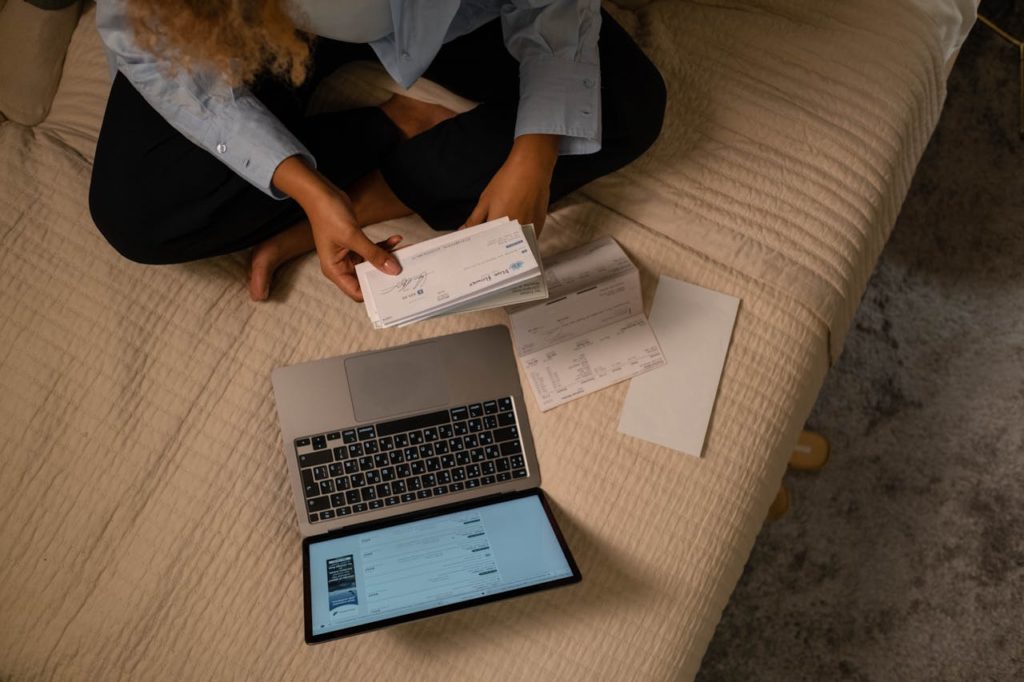
If you issue cheques to suppliers or receive deposits in the form of cheques, you will firsthand experience mismatches between your bank statements and Quickbooks bank balance.
Let’s say you received a payment from a customer and promptly recorded it in QuickBooks. However, the deposited cheque takes a few days to clear through the bank. In the interim, your QuickBooks balance will reflect the deposit, but your bank statement will not yet show the balance for the deposited cheque.
For instance, suppose on Monday, you deposit a $1,000 check from a customer into your business checking account. You then record this deposit in QuickBooks on the same day. However, banks typically take a few business days to process and clear cheques. So, even though the deposit is reflected in your QuickBooks balance immediately, it might take until Wednesday or Thursday before the deposit appears on your bank statement.
During this time gap, your QuickBooks balance will be $1,000 higher than your bank statement because the deposit hasn’t been processed by the bank yet. This creates a discrepancy between the two balances until the check clears, and the bank statement catches up with QuickBooks.
Similarly, outstanding cheque, where you’ve issued payments but they haven’t been cashed or cleared by the bank, can cause a similar discrepancy. If you’ve recorded a payment in QuickBooks but the recipient hasn’t deposited the cheque or the bank hasn’t processed it, your QuickBooks balance will be lower than the bank statement until the check is cashed and processed.
This delay in processing cheque and deposits by the bank compared to when they are recorded in QuickBooks is a common reason why your QuickBooks bank balance may not match your bank statement. It is also one of the main reasons it is important to regularly reconcile your accounts to identify and address such discrepancies promptly.
Reason #3 – Bank Fees
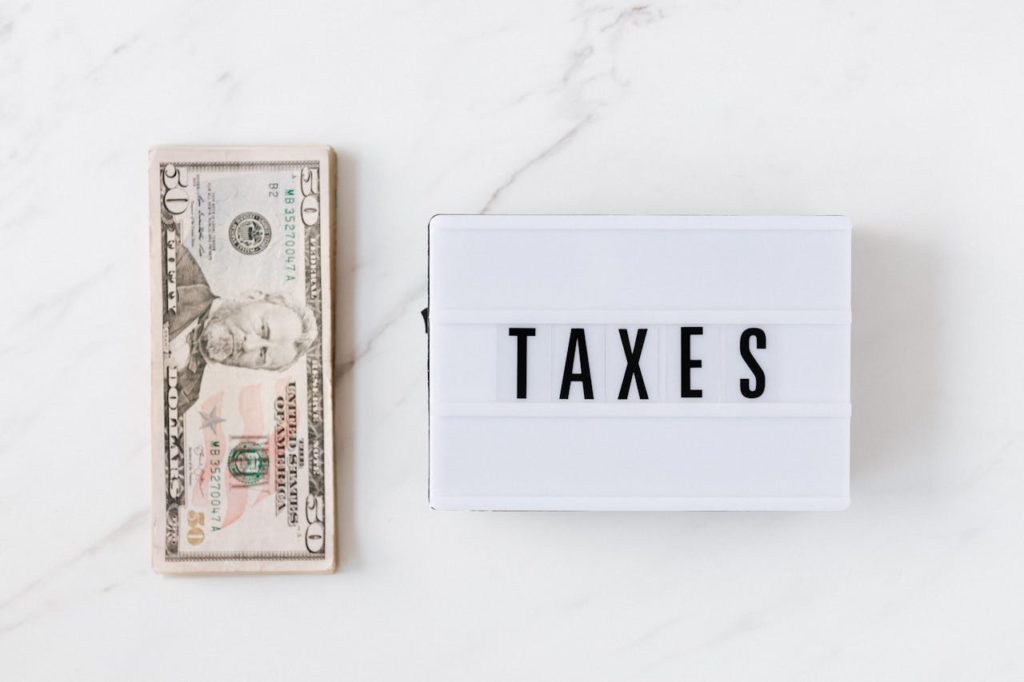
Charges such as maintenance fees or overdraft fees imposed by the bank may not be immediately reflected in QuickBooks, causing a difference in balances. While these fees are automatically deducted from your account by the bank, they may not be immediately visible in QuickBooks.
If your bank charges a monthly maintenance fee of $15, for examples, this fee is typically debited from your account on the last day of the month. However, your bank statement might not be generated until a few days into the next month, meaning the fee won’t be reflected in your bank, until an official statement is issued.
In QuickBooks, you might not notice this fee until you reconcile your accounts at the end of the month or review your transaction history. If you fail to record this fee promptly in QuickBooks, your QuickBooks balance will be $15 higher than your bank statement balance. This is of course until you reconcile the accounts and adjust for the fee.
Similarly, if your account becomes overdrawn and your bank charges you an overdraft fee, this charge might not be immediately visible in QuickBooks if you’re not actively monitoring your account. The overdraft fee will be deducted from your account by the bank, but unless you manually enter it into QuickBooks, your QuickBooks balance will remain higher than your bank statement balance until you reconcile the accounts.
Reason #4 – Reconciliation and Data Entry Errors
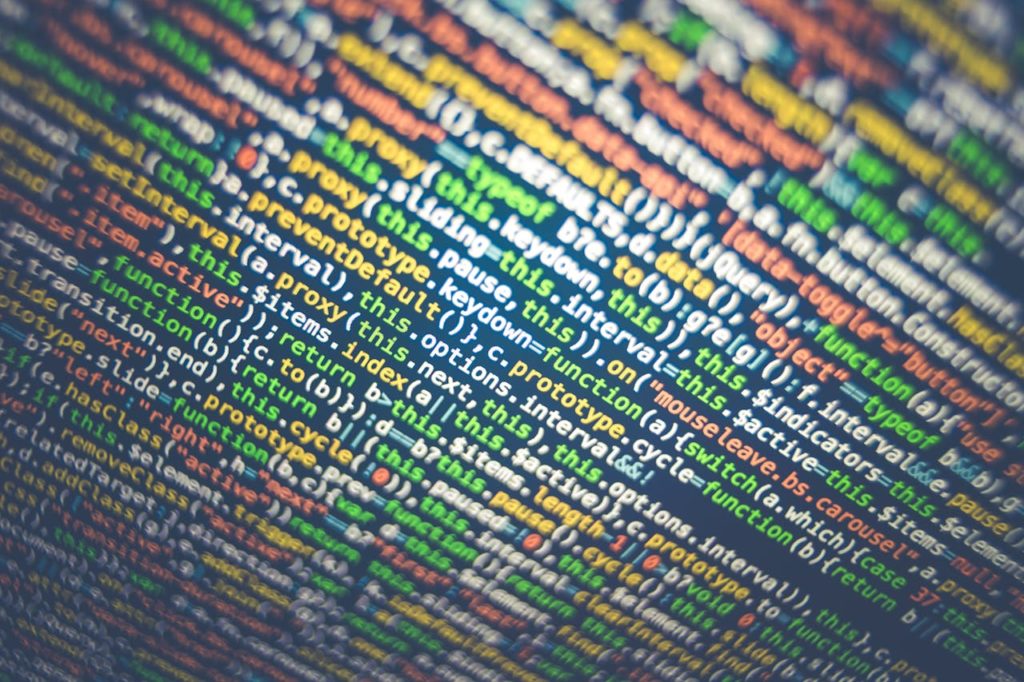
Mistakes made during the reconciliation process, such as incorrect dates or amounts entered, can result in inconsistencies between QuickBooks and your bank statement.
For incorrect dates, it is possible that you have mistakenly recorded a couple of transactions with the wrong dates in QuickBooks. For example, you recorded a deposit on January 31st, but it actually occurred on February 1st. Similarly, you recorded a cheque payment on January 28th, but it cleared your bank account on February 4th. These date discrepancies cause your QuickBooks balance to be off by the amounts of these transactions.
Similar, it is possible that you may have entered a few transaction amounts incorrectly in QuickBooks. For instance, you recorded a payment for office supplies as $250, but the actual amount debited from your bank account was $275. Similarly, you recorded a customer payment as $1,500, but it was actually $1,600. These discrepancies in transaction amounts contribute to the differences between your QuickBooks balance and your bank statement balance.
These errors are typically due to human mistake and should be prevent by using data capture software as much as possible. This help eliminate human error and results in more accurate data entries.
Reason #5 – Duplicate Entries

You could have accidentally entered transactions twice in QuickBooks. This can happen especially if you are using the receipt feature and not matching receipts to transaction in the bank feed. Or, it can be the result of careless data entry. Ultimately, this can inflate the balance and cause discrepancies when compared to the bank statement.
As an examples, say on February 10th, you made a payment of $500 to your vendor for services rendered. You promptly recorded this payment in QuickBooks on the same day, deducting $500 from your checking account balance. However, due to a data entry error or oversight, you inadvertently recorded the same payment again on February 15th. As a result, another $500 was deducted from your chequing account balance in QuickBooks.
Now, when you reconcile your accounts, both transactions are reflected in your QuickBooks balance, leading to an inflated balance compared to your bank statement. The duplicate entry has effectively increased your QuickBooks balance by $500 more than it should be, causing a discrepancy.
To rectify this issue, you need to review your transaction history in Quickbooks to identify any duplicate entries or discrepencies. Then delete or void the duplicate transaction recorded in QuickBooks to eliminate the inflated balance. Finally, after correcting the duplicate entry, reconcile your QuickBooks balance with your bank statement again to ensure they match accurately.
Reason #6 – Unrecorded Transactions

Transactions not recorded in QuickBooks, such as bank fees or interest earned, or other transactions, can lead to variations in balances between QuickBooks and the bank statement. The Quickbooks bank feed is not perfect and as result, it is possible to it to miss transactions. On the other hand, you may miss to record certain entries in Quickbooks that show up in the bank statement.
When this happens, your Quickbooks bank balance may be lower or higher than your bank statement balance, depending on the types of entries required.
To correct this, you simply have to find and enter all the missing entries. Following that, reconcile your Quickbooks balance with your bank statement to ensure they match accurately.
Reason #7 – Bank Holds or Transfer Delays

There are cases where you may need to transfer funds from one bank to the next. For example, transferring an amount from your chequing account to your credit card in order to pay your credit card. Or you can have a situation where someone wired you a large sum of money on a certain date but it does not clear until later on.
In both cases, the bank may hold or delay the funds in order to cheque if they are suspicious or not. When this happens and you record the transactions in Quickbooks, you will end up with a balance that is different from your bank statement.
It is probably best to wait until balances clear before recording them into Quickbooks. However, in cases where you absolutely need to record the balances, you can record them outstanding in a holding account such as in an accrual account or a clearing account. You can later transfer the transaction to the appropriate bank account in Quickbooks, once the balance is cleared in the bank.
Reason #8 – Fraudulent Activity

Unauthorized transactions or fraudulent activity on the account can skew balances in QuickBooks before they are reconciled with the bank statement. These may include unauthorized withdrawals, suspiscious debit transactions, forged checks, or unauthorized transfers.
In most cases, you cannot control this but you can detected them much faster and easier if you reconcile your bank frequently. If for example you do not reconcile your bank accounts frequently and you have fraudulent activity in your bank accounts, by the time you reconcile it, it may be too late to catch the culprits.
You can catch fraudulent activity easily if your bank account is reconciled in real time or at minimum, monthly.
Reason #9 – Currency Conversion Discrepancies

If you deal with multiple currencies, differences in exchange rates between the time of recording transactions in QuickBooks and their clearance in the bank can lead to imbalances. In Quickbooks, if you have multiple currency turned on, any bank account using a different current from your home currency, will show the converted home currency amount. In such a case, it may not be necessarily true that your bank balance in Quickbooks is different from your statement. But rather, you have a difference in exchange rates amongst your bank balances in Qiuckbooks.
Say for example, a customer from the United Kingdom purchases a product from your online store for £500. You promptly record this sale in QuickBooks into your UK bank account. Since multi-currency is turned on, you record £500 into your UK bank account and allow Quickbook to handle the converting to Canadian dollars. When you look at your balance sheet, you will notice that your UK balance does not show the UK account, but rather the Canadian conversion amount. This is fine also long as all the transactions on the bank statement have also been accounted for in Quickbooks.
Conclusion to 9 Reasons Quickbooks Bank Balance Doesn’t Match Bank Statement
In conclusion, maintaining accuracy between your QuickBooks bank balance and your bank statement is important for good business management. The various reasons for discrepancies, ranging from timing differences and outstanding checks to bank fees and fraudulent activity, underscore the importance of vigilant monitoring and reconciliation processes.
By understanding the potential sources of imbalance, businesses can implement proactive measures to address and rectify discrepancies promptly. Regular reconciliation and attention to detail in recording transactions are essential to ensuring that the QuickBooks bank balance matches the bank statement balance. It also further prevents future discrepancies.

